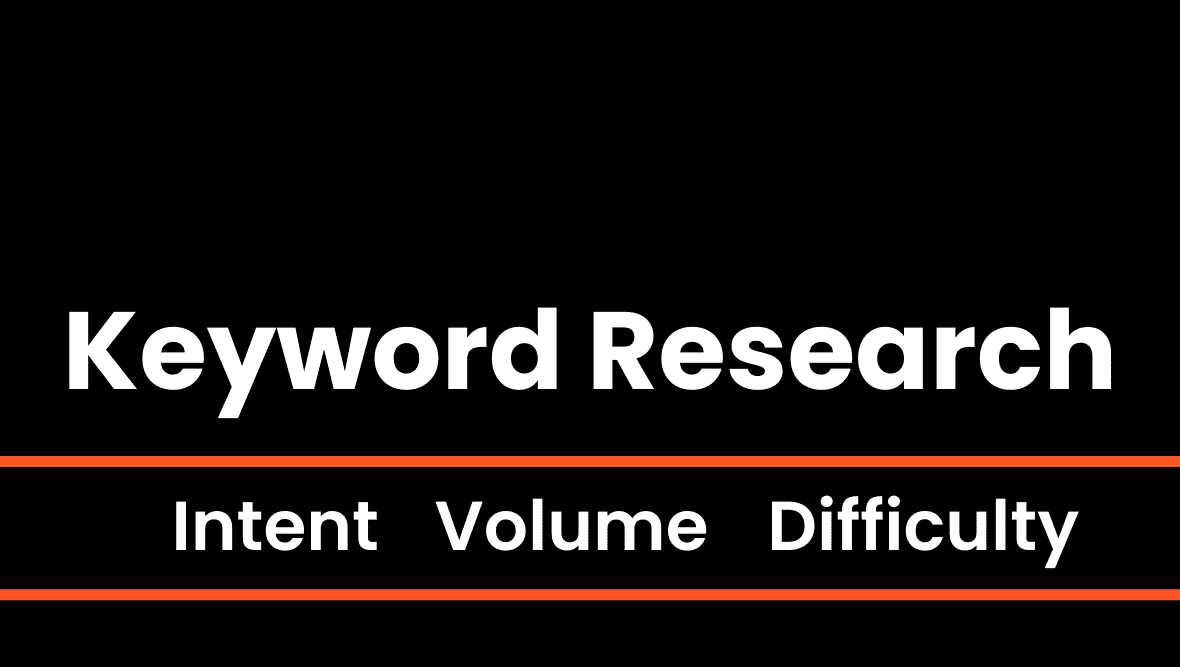
Before you build a new website, or new page on an existing website, it’s worthwhile conducting keyword research for SEO. It’s not only valuable in giving insights into what users are looking for, but it will also inform on the kind of terminology they are using as well as the questions they are looking to answer. Simply put - reaching the right people with your page is so much easier when keywords are your starting point.
What is keyword research?
Keyword research is a way of discovering exactly what queries people are searching for; what terminology is being used, how often it is being searched for, and how much competition you’ll have to rank for that keyword.
How to do keyword research
Start by looking for a topic that is relevant to the purpose of your site. You can do this by looking at Google Search Console queries for your existing pages or, for more niche keyword ideas, monitoring Google trends and trends that occur on other search engines. This will help you understand what topics are currently trending and if that topic is a short-term trend (micro trend) or if it has long-term sustainability.
Knowing this is helpful because it will help you decide if a topic is valuable enough to create content for. If it is valuable but a micro-trend, you need to consider whether or not your workload and processes will allow you to execute a quick turnaround. If it’s a more sustainable trend, then the time to publish will be dictated by your content marketing schedule.
For example: Valentine’s Day occurs annually but has a small window of opportunity to harness significant traffic. This would be considered a micro trend so if you aren’t publishing ahead of the event then you’ll miss the trend. However, if you are late to the trend you can use the information gathered to inform your content marketing schedule for the following year so that you are ahead of the trend.
Using a keyword research tool
Once you have a relevant topic you can utilise a free keyword research tool, alternatively, you may already pay for an SEO service that has keyword research tools, our favourites are the Keyword Magic Tool and Keyword Overview on SEMRush.
Use your chosen research tool by inputting your topic, as well as words related to your topic, and it will return with queries and questions being searched surrounding said topic. The volume will vary according to how niche your topic is but you must spend time going through the list to select the most valuable keywords and long-tail keywords for you to target, and this is where the balancing act comes in.
Example of results
Your research will likely return different variations of similar queries:
Explaining Intent, Volume and Difficulty
This is where you need to consider your website as a whole. If you are a specialist on said topic and you have a strong site and lots of content around the topic, it’s worthwhile targeting those top keywords with high search volume and high difficulty such as in examples A & B.
However, if you aren’t technically a specialist but it is a topic relevant to your site then you’ll likely have more success by targeting keywords that are considered a little easier to rank for. These will often have a lower search volume but not always (see examples F & H). If necessary you may have to narrow down your phrase according to what is most relevant (see examples K - O).
Considering the longevity of your targeted keyword is also important. As you can see in the example list above, the query ‘when is valentine’s day 2023’ has a strong search volume and reasonably low keyword difficulty. It will also be outdated as soon as the date has passed so if you’d like to keep the page or blog post as an evergreen piece and update it in future years then it wouldn’t be a worthwhile keyword to target.
In addition to getting the right balance of search volume and keyword difficulty, it’s worth taking into account the search intent of keywords. If the purpose of your content is to promote or sell a product then you’ll want to prioritise keywords with transactional or commercial intent. If you intend to inform then you’ll prioritise keywords with informational intent.
Putting research to use
Once you have narrowed down a list of keywords and phrases to target you can use them to create the content for your site. Use them in a logical manner and in key areas such as your URL/H-Tags/Metadata, rather than overusing them.
Be mindful to include semantically related terminology in the copy to support the primary keywords you want to target. Once your page or content is live and has been crawled by the search engines you can begin to analyse keywords and if they have ranked or created any SERPs features for your site.
Now you should be all set to take on some keyword research!
Remember that keyword research is just one aspect of implementing a great SEO strategy. This is where our experts come in and specially work on your brand for SEO success!
Get in touch today to see how we can help you.
